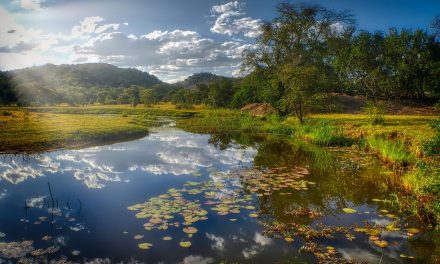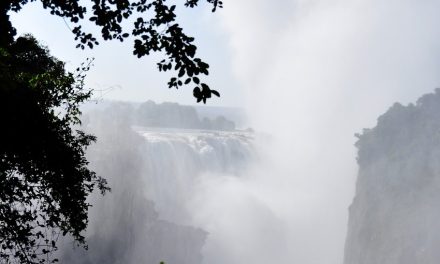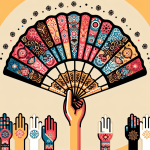Thinking about traveling to Zimbabwe? You might be wondering if it’s a safe destination. Well, fear not! This article explores the safety aspect of traveling to Zimbabwe, shedding light on the country’s current situation to help you make an informed decision. From wildlife experiences to vibrant culture, Zimbabwe has much to offer, and we’re here to help you navigate the safety concerns so that you can enjoy your trip with peace of mind.
Zimbabwe’s Political Climate and Stability
Zimbabwe has experienced significant political changes in recent years, which have had an impact on the country’s stability and security. The political landscape in Zimbabwe has shown signs of improvement with the transition of power from former President Robert Mugabe to President Emmerson Mnangagwa in 2017. This change has brought some hope for political stability and economic growth in the country.
Recent Political Developments
In 2017, Robert Mugabe, who had ruled Zimbabwe for nearly four decades, was removed from power through a military intervention. This marked a turning point in Zimbabwe’s political history and raised hopes for a more open and democratic society. President Mnangagwa, Mugabe’s former ally, took over and promised to bring about much-needed reforms, including improving the business and investment climate.
Since then, the government has taken steps to attract foreign investment, reduce bureaucracy, and promote economic growth. However, Zimbabwe’s political landscape remains complex, and challenges still exist in terms of transparency, corruption, and human rights.
Impact on Tourism Sector
The political developments in Zimbabwe have also had repercussions for the tourism sector, which plays a vital role in the country’s economy. The instability and negative international perception during Mugabe’s regime deterred many potential tourists from visiting Zimbabwe.
However, with the change in leadership and efforts to revitalize the economy, the tourism sector has shown signs of growth. Zimbabwe boasts incredible natural beauty, rich cultural heritage, and abundant wildlife, making it an attractive destination for adventurous travelers. The government has recognized the importance of tourism as an economic driver and has implemented initiatives to promote the sector, such as the introduction of e-visas and the provision of more tourist facilities.
Safety Concerns
Despite the positive strides made in the political realm, safety concerns still exist in Zimbabwe. It is advisable to remain aware of your surroundings and take precautions to ensure your safety throughout your visit.
Zimbabwe has experienced various forms of civil unrest and protests in recent years. These incidents can sometimes turn violent, and it is crucial to stay away from any demonstrations or gatherings as they can quickly escalate. Stay updated with local news and follow any travel advisories issued by your embassy or the local authorities.
Crime and Safety Issues in Zimbabwe
While Zimbabwe offers remarkable experiences for travelers, it is essential to be aware of the general crime situation and take necessary precautions to ensure your safety.
General Crime Situation
Zimbabwe experiences crime, like any other country, but there are regions where crime rates are relatively higher than others. Major cities such as Harare can have higher incidents of crime, including theft, robbery, and scams, compared to rural areas. Nevertheless, it is crucial to exercise caution regardless of your location.
Pickpocketing and Petty Theft
Pickpocketing and petty theft can occur in crowded areas, particularly in urban centers. Always keep a close eye on your belongings, especially in crowded markets, tourist attractions, and public transportation. It is advisable to use a money belt or a secure bag that cannot be easily accessed by potential thieves.
Robbery and Mugging
Instances of robbery and mugging have been reported, mainly in poorly lit and deserted areas. Avoid walking alone at night, especially in unfamiliar neighborhoods. Stay in well-lit and populated areas, and if possible, take a trusted local guide or company for exploration in less-populated regions.
Scams and Fraud
Scams and fraud can occur in various forms, ranging from fake tour operators to street vendors selling counterfeit products. Be cautious when dealing with unfamiliar vendors or tour operators. Do thorough research, read reviews, and check for certifications before engaging in any financial transactions.
Carjacking and Theft
Carjacking and theft can be a concern, especially in urban areas. It is advisable to park in well-lit and monitored areas, lock your vehicle when unattended, and avoid leaving valuables in plain sight. If possible, use reputable car rental companies that provide additional security features.
Protests and Civil Unrest
Civil unrest and protests can be unpredictable and potentially dangerous. Avoid participating in or getting close to any demonstrations, and stay informed about the current situation through reliable news sources and travel advisories.
Health and Disease Risks
Zimbabwe poses certain health and disease risks that travelers should be aware of before visiting the country. Taking the necessary precautions and vaccinations is essential to safeguard your well-being.
Malaria and Other Infectious Diseases
Malaria is prevalent in Zimbabwe, particularly in rural areas and during the rainy season. It is crucial to take antimalarial medication before, during, and after your visit. Additionally, other infectious diseases such as typhoid, cholera, and hepatitis can be a concern. It is advisable to consult a healthcare professional or travel clinic at least six weeks before your trip for proper vaccinations and advice on preventing these diseases.
Availability of Healthcare
Zimbabwe’s healthcare system faces challenges in terms of resources and infrastructure. The availability of quality medical facilities and services can vary significantly across the country. It is advisable to have travel insurance that covers medical evacuation to a nearby country with better healthcare facilities, in case of emergencies. Carry essential medications, a first aid kit, and any prescribed medications you may need during your trip.
Safety Precautions and Vaccinations
Apart from antimalarial medication, other vaccinations, such as hepatitis A and B, typhoid, measles, and routine immunizations, are recommended before traveling to Zimbabwe. It is crucial to follow standard safety precautions, such as practicing good hygiene, drinking safe and bottled water, and avoiding street food unless it is properly cooked and served hot.
Transportation Safety
Understanding the transportation safety conditions in Zimbabwe is crucial for a safe and hassle-free journey.
Road Conditions and Driving Risks
Zimbabwe has a varied road network, ranging from well-maintained highways to deteriorating rural roads. It is essential to exercise caution while driving and be aware of potential risks, including reckless driving, poor road signage, and the presence of pedestrians and livestock on the roads. Avoid driving at night, especially in rural areas, and ensure your vehicle is in good condition and properly insured.
Public Transportation Safety
Public transportation options in Zimbabwe include buses, minivans (known as “kombis”), and taxis. While buses can be relatively safer, minivans and taxis may not always adhere to standard safety regulations. It is advisable to use reputable taxi services or hire private transportation through trusted companies. If you choose to use minivans, ensure they are not overcrowded and follow basic safety practices.
Air Travel Safety
Zimbabwe has several domestic airports, and air travel is generally considered safe. However, it is crucial to check the safety records and reputation of airlines before booking your flights. Adhere to all security protocols at airports and follow the instructions of airline staff and security personnel.
Wildlife and Outdoor Safety
Zimbabwe’s abundant wildlife and natural landscapes make it an attractive destination for outdoor enthusiasts. However, it is vital to be aware of potential risks and take necessary precautions.
Safari and Wildlife Experiences
Zimbabwe offers incredible safari experiences, allowing visitors to observe wildlife in their natural habitats. When going on a safari, always follow the instructions of trained guides, maintain a safe distance from animals, and avoid any sudden or threatening behavior. Never feed or provoke animals, as this can be dangerous.
Animal Attacks and Safety Precautions
Wild animals, including elephants, buffalo, and hippos, can be dangerous if approached inappropriately. Always maintain a safe distance and respect their space. Do not attempt to touch or approach animals, especially in the wild. Take note of any safety briefings or instructions provided by guides or park authorities.
Hiking and Outdoor Activities
Zimbabwe offers beautiful landscapes for hiking and outdoor activities, such as exploring national parks and waterfalls. It is crucial to hire experienced and knowledgeable guides for such activities. Inform someone about your hiking plans, carry essential supplies, and be mindful of your physical fitness and limitations. Follow safety guidelines and be prepared for changes in weather conditions.
Tourist Attractions and Security
Zimbabwe is home to numerous tourist attractions, each with its own unique security considerations.
Popular Tourist Destinations and Their Safety
Popular tourist destinations in Zimbabwe include Victoria Falls, Hwange National Park, Mana Pools National Park, and Great Zimbabwe. These attractions typically have security measures in place to ensure the safety of visitors. However, it is still essential to remain vigilant, follow any instructions provided by park staff or guides, and avoid visiting certain areas during periods of civil unrest or protests.
Security Measures at Major Attractions
Major tourist attractions often have security personnel, surveillance cameras, and controlled entry points to enhance visitor safety. It is advisable to cooperate with security personnel, adhere to any safety guidelines, and report any suspicious or unusual activities to the authorities or park staff.
Risk of Theft and Scams at Tourist Spots
Like in any popular tourist destination, there is a risk of theft and scams in Zimbabwe’s tourist spots. Stay cautious of your surroundings, keep your valuables secure, and avoid displaying excess wealth. Be wary of offers that seem too good to be true or any suspicious individuals trying to engage you in unsolicited activities.
Safety Tips for Traveling in Zimbabwe
To ensure a safe and enjoyable trip to Zimbabwe, here are some helpful safety tips to keep in mind:
Research and Planning
Before your trip, thoroughly research the country, its culture, customs, and current events. Familiarize yourself with the local laws and traditions to avoid inadvertent violations. Plan your itinerary in advance and check the availability of safe accommodation options.
Registering with Your Embassy
Registering with your embassy or consulate upon arrival is a wise practice. This allows your government to reach out to you in case of emergencies, civil unrest, or natural disasters. Stay updated with any travel advisories issued by your embassy during your visit.
Choosing Safe Accommodation
When selecting accommodation, prioritize safety and security features, such as reputable hotels, guesthouses, or lodges with good reviews and security protocols in place. Consider factors such as the location, access to emergency services, and reviews from previous guests.
Avoiding Isolated Areas
Stay in areas that are well-populated and well-patrolled, especially at night. Avoid venturing into isolated or unfamiliar areas alone, and if you do, inform someone about your plans and expected return time. It is always safer to explore with a trusted local guide or in a group.
Keeping Personal Belongings Secure
Keep your personal belongings secure at all times. Use a money belt or a secure bag to carry your passport, cash, and other valuables. Avoid displaying expensive items, and be cautious when using your phone or electronic devices in crowded areas.
Being Cautious with Food and Water
To prevent foodborne illnesses, be cautious with what you eat and drink. Opt for bottled or boiled water, and avoid consuming uncooked or undercooked food. Pay attention to food hygiene practices and eat at reputable establishments. If you have any dietary restrictions or allergies, communicate them clearly to ensure a safe dining experience.
Respecting Local Customs and Traditions
Respect for local customs and traditions is essential to having a positive and safe experience in Zimbabwe. Familiarize yourself with basic etiquette and cultural norms, such as appropriate dress codes, greetings, and social behaviors. It is advisable to avoid sensitive topics of discussion, especially those related to politics and religion.
Staying Alert and Vigilant
Regardless of the destination, maintaining awareness is vital for personal safety. Pay attention to your surroundings, trust your instincts, and be cautious in unfamiliar situations. Avoid excessive alcohol consumption, as it can impair judgment and make you more vulnerable to potential threats.
Government and Travel Advisory
To stay informed and make informed decisions, it is crucial to understand the official government stance and any travel advisories issued by foreign embassies.
Official Government Stance
Zimbabwe’s government acknowledges the importance of tourism and has implemented measures to improve the safety and security of visitors. However, it is advisable to verify the most up-to-date information through official government sources, such as the Ministry of Tourism or the Zimbabwe Tourism Authority.
Advice from Foreign Embassies
Foreign embassies often provide travel advisories and safety guidelines for their citizens visiting Zimbabwe. It is essential to stay updated with any advisory issued by your home country’s embassy or consulate. These advisories typically include information regarding safety concerns, health risks, and political developments.
Testimonials and Experiences of Travelers
To gain a better understanding of the safety situation in Zimbabwe, it can be helpful to read testimonials and experiences of fellow travelers who have visited the country. These firsthand accounts can provide insights into the challenges faced, safety precautions taken, and overall impressions of the destination.
Positive Experiences
Many travelers have had positive experiences in Zimbabwe, enjoying its natural beauty, friendly people, and unique cultural heritage. They have highlighted the warm hospitality, the abundance of wildlife, and the incredible landscapes as some of the highlights of their trips. Many have also appreciated the efforts made by the government and local communities to ensure a safe and enjoyable experience for tourists.
Negative Experiences
While there have been positive experiences, some travelers have also faced challenges and encountered safety issues during their visit to Zimbabwe. These experiences range from petty theft and scams to more serious incidents such as robberies or accidents. It is essential to learn from these negative experiences and take necessary precautions to avoid similar situations.
Tips from Experienced Travelers
Experienced travelers who have visited Zimbabwe provide valuable tips to ensure a safe journey. These tips often include advice such as staying informed about the local culture and customs, being cautious when dealing with strangers, and remaining vigilant throughout your trip. They emphasize the importance of planning, choosing reputable tour operators and accommodations, and respecting the local community and environment.
Conclusion
Assessing the overall safety of traveling to Zimbabwe requires considering various factors, including the political climate, crime situation, health risks, transportation safety, and specific tourist attractions. While the country has made progress in terms of political stability and efforts to enhance security, certain challenges remain.
By taking necessary precautions, including conducting thorough research and planning, registering with your embassy, choosing safe accommodation, and being mindful of your surroundings, you can reduce the risks associated with traveling in Zimbabwe. Consider the advice and experiences of other travelers, stay updated with official government information and travel advisories, and make an informed decision based on your personal comfort level and assessment of the safety situation.
Remember, no destination is entirely risk-free, and traveling always carries a certain level of uncertainty. By staying alert, being prepared, and respecting the local culture and environment, you can have a safe and rewarding experience exploring the wonders of Zimbabwe.












